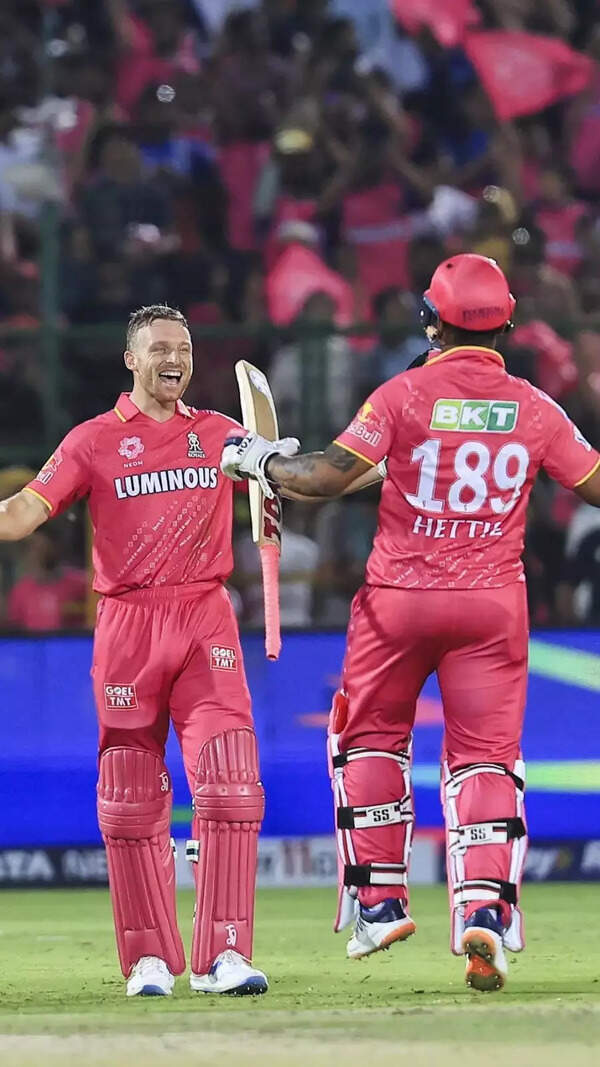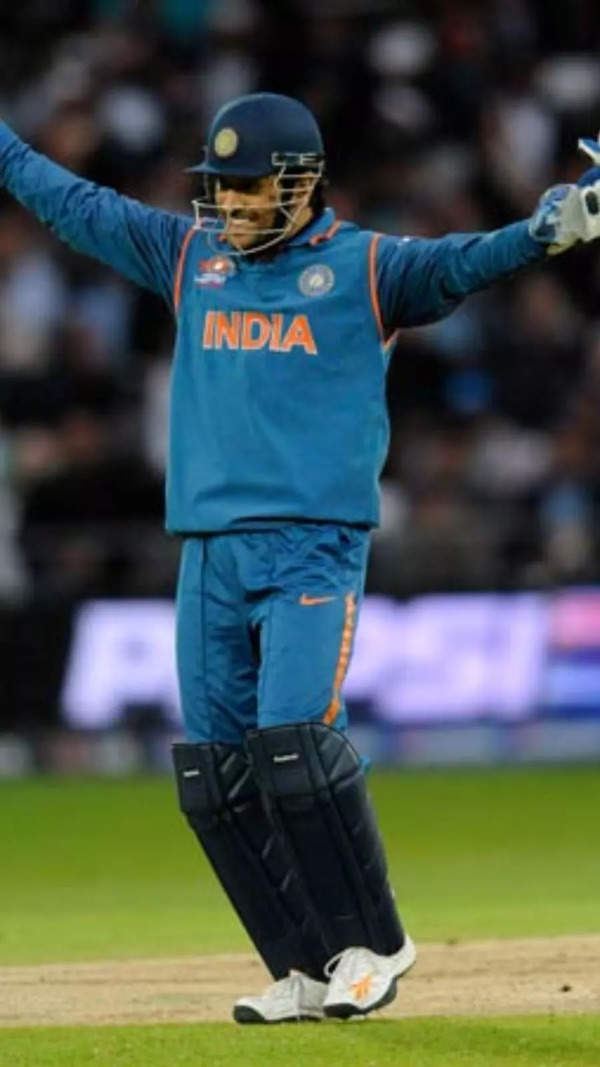- News
- Sports News
- Chucking had reached tipping point: ICC
Trending
This story is from October 14, 2014
Chucking had reached tipping point: ICC
While many former cricketers have welcomed the International Cricket Council (ICC)'s move to eliminate chuckers from the game, a few legends have questioned the timing of the crackdown, with the World Cup round the corner.

MUMBAI: It began with West Indies offspinner Shane Shillingford being reported for a suspect action after the Test series against India last year. Since the past few months, the game's administrators, it seems, have been on a 'throw out the throwers' mission, with several top bowlers -Pakistan's Saeed Ajmal and West Indies' Sunil Narine being the most prominent ones, being hauled up for allegedly chucking the ball.In fact, the recently-held CLT20 saw as many as three bowlers being reported for suspect actions.
While many former cricketers have welcomed the International Cricket Council (ICC)'s move to eliminate chuckers from the game, a few legends have questioned the timing of the crackdown, with the World Cup round the corner. West Indies' greats Clive Lloyd and Viv Richards came down heavily on the move after 'mystery spinner' Narine was forced out of the In dia tour following his suspension in CLT20. Pakistan coach Waqar Younis too felt the timing of the process, which resulted in his team losing its best bowler Ajmal just sixth months before the World Cup, was questionable.
In its, response, the ICC, which has virtually declared an all-out war against bowlers with illegitimate actions, has stuck to its guns. In an emailed response to TOI on Monday, Geoff Allardice, ICC general manager (cricket), revealed that the decision to act stricter with chuckers was taken by the ICC Cricket Committee in June, after it was felt by everyone that the ICC wasn't do ing enough to keep the chuckers out.
"The game had reached a tipping point on this issue, when many groups within the game felt that there were too many bowlers with suspect actions op erating in international r cricket. The most promi nent of these groups was l the ICC Cricket Committee t at its meeting in June, I when it observed the ICC's t reporting and testing pro cedures were not ade quately scrutinizing these t bowlers. They weren't the t only ones talking about this e issue, as similar views had I been expressed by teams, players, umpires, referees s and administrators. I and administrators. I "Since that time the umpires have i felt more confident to report their con j cerns with certain bowlers, and their concerns have been supported by the results of the testing of these reported t bowlers," Allardice said, explaining the s reason and timing of the ICC cracking the whip.
The BCCI so far has been silent on the issue, though there is a thought that the crackdown has ironically coincided with N Srinivasan taking over as the ICC chairman. "It will be premature for me to say anything because this decision and its methodology belong to the ICC TC. I will express my views on this in the ICC meet," BCCI secretary Sanjay Patel said.
A few days back, Team India's technical director Ravi Shastri had lauded the move, though. "You had to take a strong stance and start nipping it in the bud. It should have been done earlier, but better late than never. The authorities were probably sleeping or were too relaxed, but now, a strong message has been sent," Shastri had said.
While many former cricketers have welcomed the International Cricket Council (ICC)'s move to eliminate chuckers from the game, a few legends have questioned the timing of the crackdown, with the World Cup round the corner. West Indies' greats Clive Lloyd and Viv Richards came down heavily on the move after 'mystery spinner' Narine was forced out of the In dia tour following his suspension in CLT20. Pakistan coach Waqar Younis too felt the timing of the process, which resulted in his team losing its best bowler Ajmal just sixth months before the World Cup, was questionable.
In its, response, the ICC, which has virtually declared an all-out war against bowlers with illegitimate actions, has stuck to its guns. In an emailed response to TOI on Monday, Geoff Allardice, ICC general manager (cricket), revealed that the decision to act stricter with chuckers was taken by the ICC Cricket Committee in June, after it was felt by everyone that the ICC wasn't do ing enough to keep the chuckers out.
"The game had reached a tipping point on this issue, when many groups within the game felt that there were too many bowlers with suspect actions op erating in international r cricket. The most promi nent of these groups was l the ICC Cricket Committee t at its meeting in June, I when it observed the ICC's t reporting and testing pro cedures were not ade quately scrutinizing these t bowlers. They weren't the t only ones talking about this e issue, as similar views had I been expressed by teams, players, umpires, referees s and administrators. I and administrators. I "Since that time the umpires have i felt more confident to report their con j cerns with certain bowlers, and their concerns have been supported by the results of the testing of these reported t bowlers," Allardice said, explaining the s reason and timing of the ICC cracking the whip.
On Monday, Australian umpire Dar i rel Hair, who had controversially 'called' r Sri Lankan spin great Muttiah Mu ralitharan in 1995 during the Melbourne Test, felt that the ICC was "20 years too late" to tackle the issue, and had allowed the chuckers to 'flourish" all this while. Interestingly, Murali too has supported this 'drive,' and asked the bowlers to bowl within the rules.
The BCCI so far has been silent on the issue, though there is a thought that the crackdown has ironically coincided with N Srinivasan taking over as the ICC chairman. "It will be premature for me to say anything because this decision and its methodology belong to the ICC TC. I will express my views on this in the ICC meet," BCCI secretary Sanjay Patel said.
A few days back, Team India's technical director Ravi Shastri had lauded the move, though. "You had to take a strong stance and start nipping it in the bud. It should have been done earlier, but better late than never. The authorities were probably sleeping or were too relaxed, but now, a strong message has been sent," Shastri had said.
End of Article
FOLLOW US ON SOCIAL MEDIA










